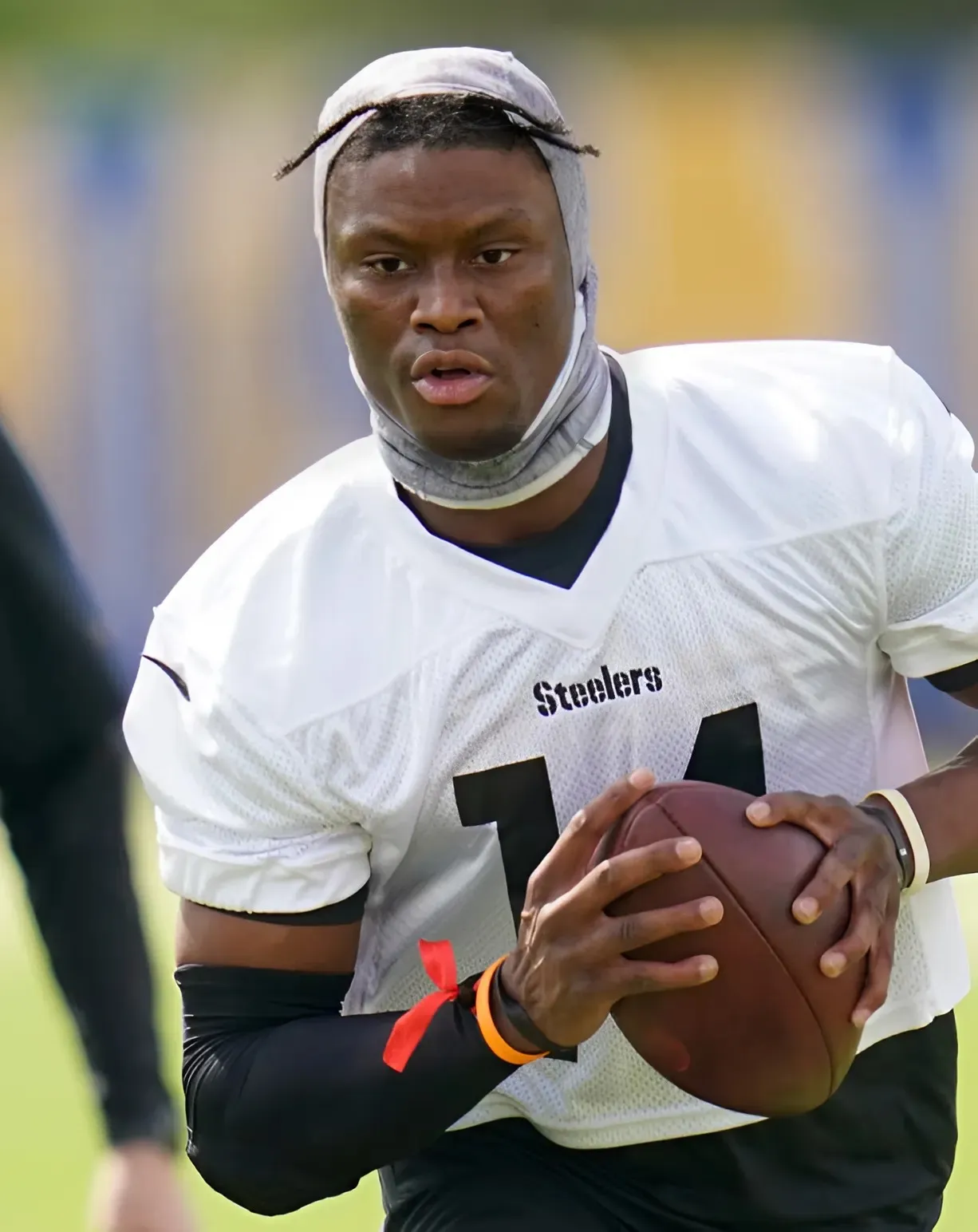
Flyers winger Tyson Foerster exploded for six goals in his final five games of the season, crossing the 20-goal threshold for the second time. (Photo: Eric Bolte, Imagn Images)
The Philadelphia Flyers signed budding winger Tyson Foerster to a highly anticipated contract extension Thursday afternoon, but the details tell the bigger story. The contract is a temporary solution to a complex situation, but there are benefits, too.
Foerster, 23, put pen to paper on a two-year, $7.5 million extension ($3.75 million AAV), signing a much shorter contract than what most were expecting.
For reference, hockey analytics mavens Evolving-Hockey gave Foerster a 27% chance of signing an eight-year extension, with a predicted annual cap hit of $6.94 million in that instance.
A two-year deal for Foerster had the second-highest odds, according to Evolving-Hockey's model, at 23%. They predicted Foerster to pull in a $4.161 million cap hit in this scenario, so the Flyers, by most accounts, got a great deal on their former-first round pick's bridge contract.
One underrated aspect of Foerster's new Flyers contract is the fact that he will still be under team control on its expiry; Foerster will still be a restricted free agent in 2027 at 25 years old.
By getting him on a short-term bridge deal, the Flyers save themselves some cap space for the potential to make a bigger move in the next two seasons and don't lose any leverage when the time comes to negotiate another contract.

Tyson Foerster's 2024-25 player card, courtesy of Evolving-Hockey.
And that time could be as soon as July 1, 2026, when Foerster will become eligible to sign a contract extension with the Flyers. It's not dissimilar to what Cam York just went through with the Flyers as a pending RFA himself.
Additionally, Foerster's new deal does not come with any form of trade protection, meaning that, now through the end of the contract, the Flyers control the 23-year-old's fate.
This could become especially prudent if a season passes and the two sides are unable to come to an agreement on a longer-term contract, or if Foerster struggles massively and is no longer deemed a fit for the future of the Flyers.
The 6-foot-2 winger's UFA year, according to PuckPedia, is 2029, so the Flyers could have pushed for more team control, but 2027 will have to suffice. It's an amicable solution for two sides who clearly wanted to get a deal done, and so Foerster will remain with the Flyers.
Grade: B+
This piece of business by the Flyers was as close to perfect as can be. Personally, a longer-term deal would have been preferable, especially considering that having some extra years of team control was, apparently, a factor of some kind.
With Foerster's contract becoming official, the Flyers now have a shade under $23 million to operate with, needing only to re-sign York, Noah Cates, Jakob Pelletier, and fringe players like Olle Lycksell and Helge Grans.
Last year, the contracts given out to Travis Konecny, Ivan Fedotov, and Owen Tippett raised some eyebrows, but the Foerster contract is a clear win for a Flyers organization that desperately needs one.
-1749529271-q80.webp)

-1743231595-q80.webp)
